- Home
- Articles
- Architectural Portfolio
- Architectral Presentation
- Inspirational Stories
- Architecture News
- Visualization
- BIM Industry
- Facade Design
- Parametric Design
- Career
- Landscape Architecture
- Construction
- Artificial Intelligence
- Sketching
- Design Softwares
- Diagrams
- Writing
- Architectural Tips
- Sustainability
- Courses
- Concept
- Technology
- History & Heritage
- Future of Architecture
- Guides & How-To
- Art & Culture
- Projects
- Interior Design
- Competitions
- Jobs
- Store
- Tools
- More
- Home
- Articles
- Architectural Portfolio
- Architectral Presentation
- Inspirational Stories
- Architecture News
- Visualization
- BIM Industry
- Facade Design
- Parametric Design
- Career
- Landscape Architecture
- Construction
- Artificial Intelligence
- Sketching
- Design Softwares
- Diagrams
- Writing
- Architectural Tips
- Sustainability
- Courses
- Concept
- Technology
- History & Heritage
- Future of Architecture
- Guides & How-To
- Art & Culture
- Projects
- Interior Design
- Competitions
- Jobs
- Store
- Tools
- More
10 Noteworthy Works of Zaha Hadid That Redefined Modern Architecture
Explore 10 iconic works by Zaha Hadid, the trailblazing "Queen of the Curve," whose innovative, fluid designs transformed modern architecture. From the Heydar Aliyev Center to the London Aquatics Center, discover how her visionary approach merged art, engineering, and functionality to redefine global landmarks and inspire a new era of architectural creativity.

Table of Contents Show
- Overview Of Zaha Hadid’s Architectural Legacy
- Characteristics Of Zaha Hadid’s Designs
- 10 Noteworthy Works Of Zaha Hadid
- 1. The Riverside Museum, Glasgow
- 2. The Guangzhou Opera House, China
- 3. The MAXXI Museum, Rome
- 4. The Heydar Aliyev Center, Azerbaijan
- 5. The Sheikh Zayed Bridge, Abu Dhabi
- 6. The London Aquatics Center, UK
- 7. The Port House, Antwerp
- 8. The Ordrupgaard Extension, Denmark
- 9. The Capital Hill Residence, Moscow
- 10. Al Janoub Stadium, Qatar
- Impact Of These Works On Modern Architecture
- Conclusion
Zaha Hadid, often called the “Queen of the Curve,” transformed the world of architecture with her bold, futuristic designs. Her work defied convention, blending fluid forms with groundbreaking innovation. As the first woman to win the Pritzker Architecture Prize, she left an indelible mark on the industry, inspiring countless architects and creatives.
From iconic cultural landmarks to awe-inspiring urban structures, Hadid’s creations are more than just buildings—they’re works of art. Her unique vision challenged traditional design norms, creating spaces that feel alive and dynamic. Let’s explore ten of her most remarkable works that continue to captivate and redefine modern architecture.
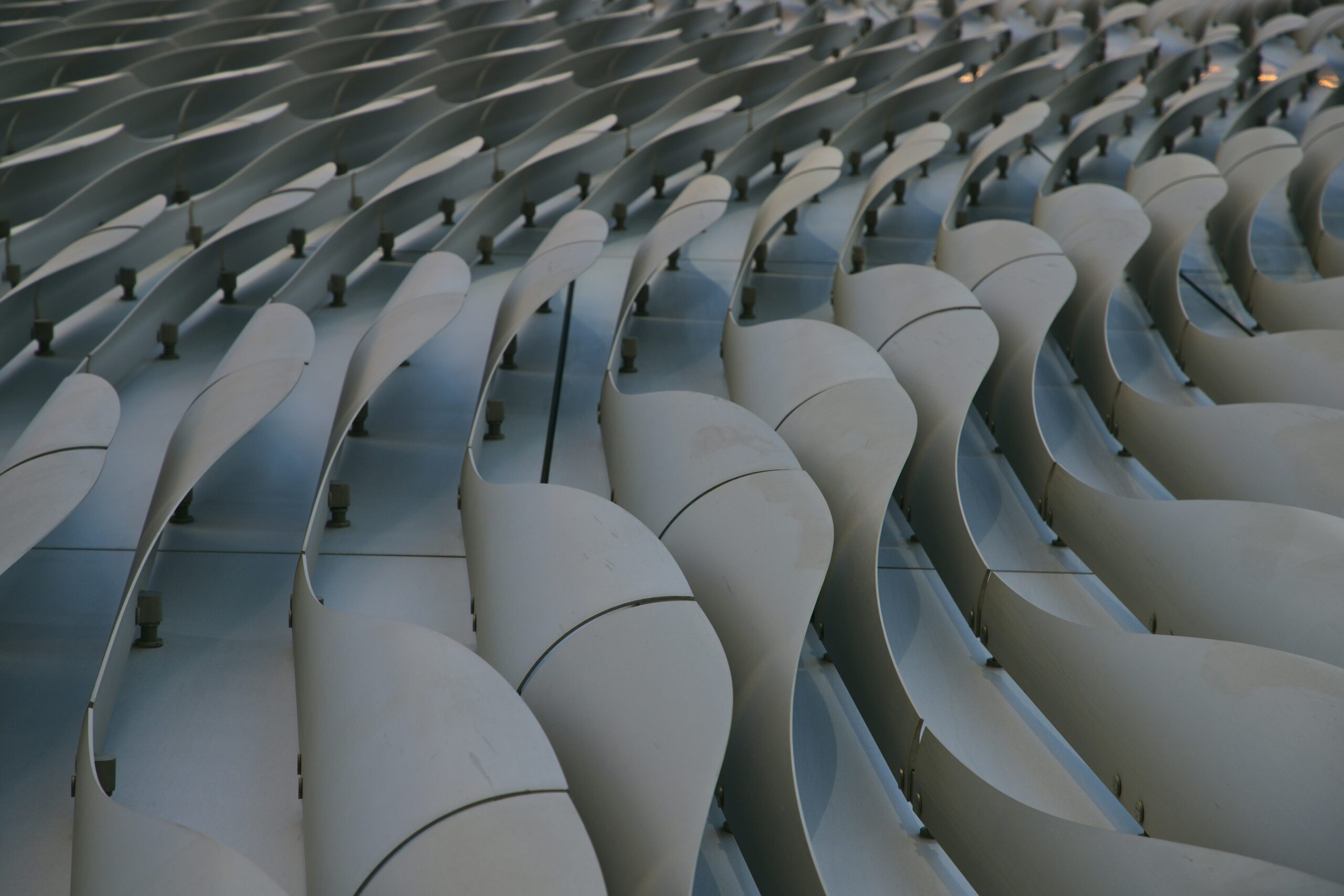
Overview Of Zaha Hadid’s Architectural Legacy
Zaha Hadid’s architectural legacy reshaped modern design principles by introducing dynamic, futuristic forms. Her projects integrate advanced engineering and innovative uses of materials, setting new standards in contemporary architecture.
Her works showcase seamless integration of technology and artistry. Using parametric design, she crafted structures like the Heydar Aliyev Center and the Guangzhou Opera House, which merge functionality with aesthetic appeal.
Hadid’s portfolio spans multiple disciplines. These include cultural institutions, transportation hubs, and residential developments, such as the MAXXI Museum and the London Aquatics Center. Each project challenges the limitations of traditional architecture.
Her global reach extended Hadid’s architectural vocabulary to over 40 countries, making her contributions universally recognized. Her designs remain benchmarks for creating urban landmarks that prioritize both form and utility.
Characteristics Of Zaha Hadid’s Designs
Zaha Hadid’s architectural style stands out for its groundbreaking approach, reimagining conventional structural forms. Her designs are celebrated for their futuristic aesthetics and innovative integration of engineering and technology.
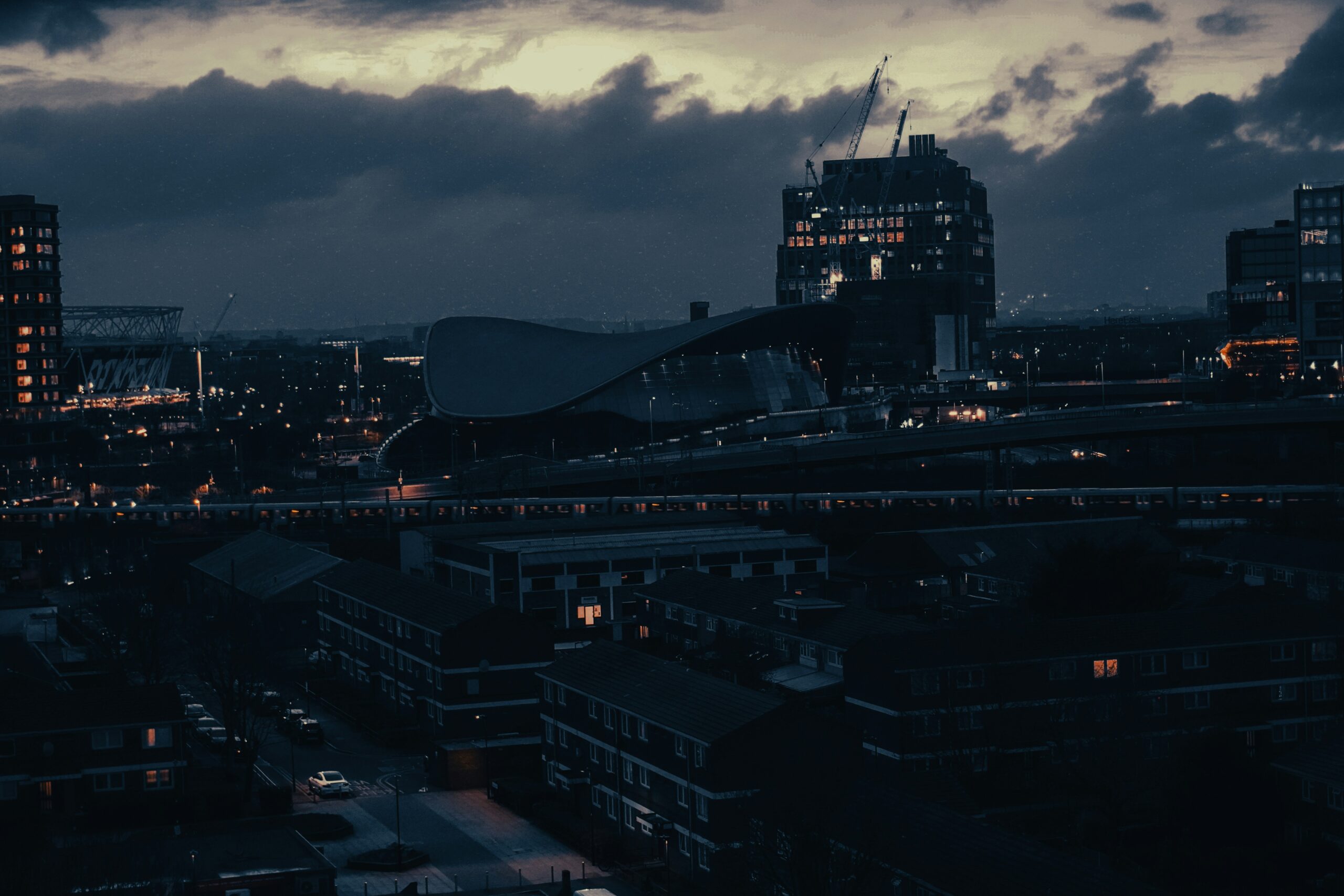
Innovative Form And Fluidity
Hadid’s designs prioritize seamless, flowing forms that reject rigid geometries. She employs curvilinear structures, creating dynamic shapes that mimic natural elements like waves and wind. For instance, the Heydar Aliyev Center in Baku showcases her signature fluid curves, blending harmoniously with its surroundings. This design philosophy reshapes how we perceive and experience architectural spaces, balancing aesthetics with functionality.
Pioneering Use Of Materials
She experiments with unorthodox materials like reinforced concrete, glass, and steel to sculpt her visionary designs. These materials enhance her futuristic concepts, enabling complex geometries to materialize. For example, the Guangzhou Opera House employs glass and concrete in innovative ways to highlight its dual-shell structure. Through parametric design, Hadid incorporates material advances to push structural and aesthetic possibilities, achieving both resilience and elegance.
10 Noteworthy Works Of Zaha Hadid
Zaha Hadid’s revolutionary designs have left a lasting imprint on modern architecture. Below, we explore ten of her most remarkable creations, highlighting their distinctive features and global significance.
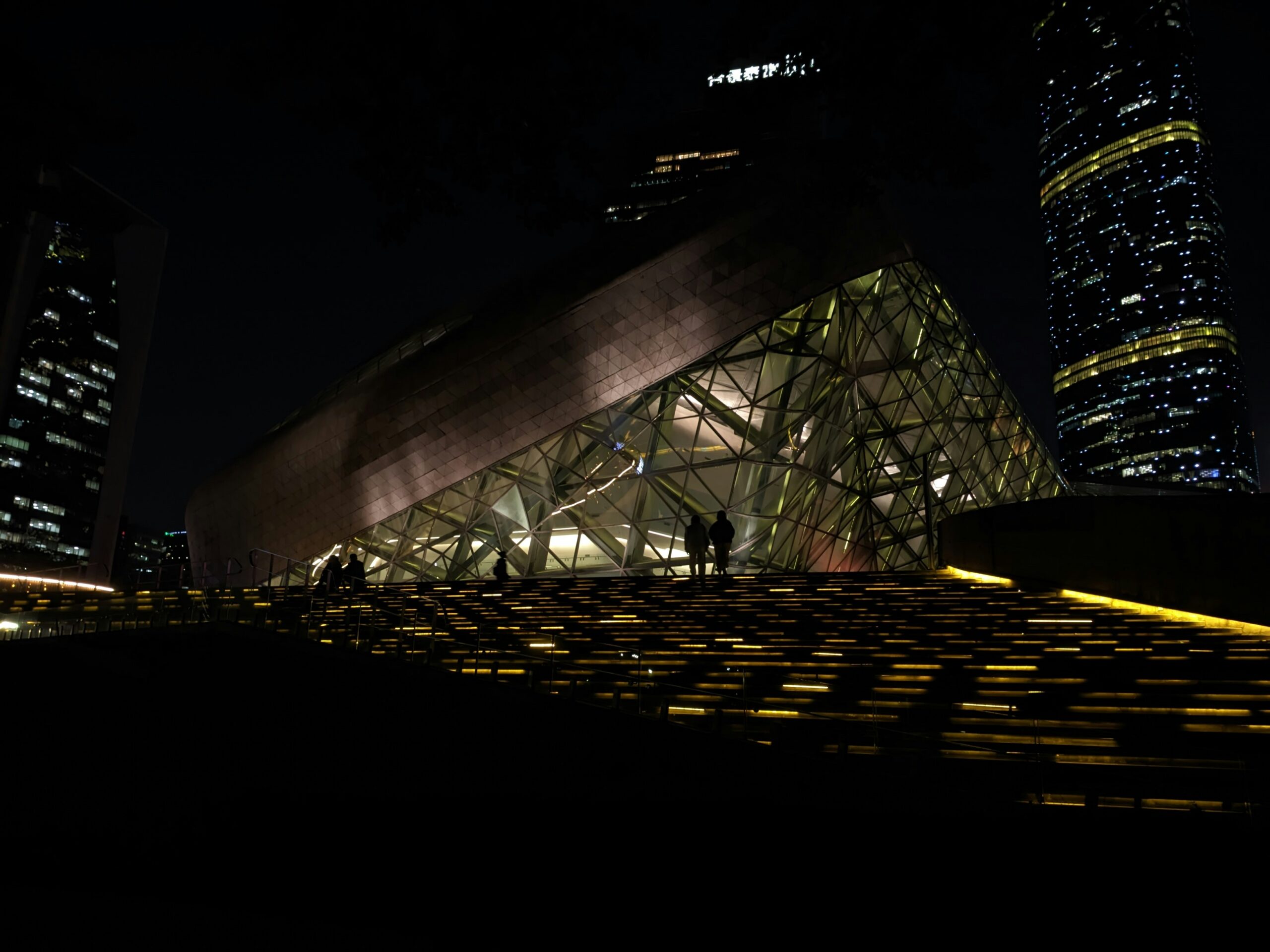
1. The Riverside Museum, Glasgow
The Riverside Museum, completed in 2011, houses transportation exhibits and sits at the confluence of the River Kelvin and River Clyde. Its zigzagging roofline and dynamic facade reflect movement, symbolizing the vehicles showcased inside. The design enhances natural light, creating a vibrant interior while maintaining energy efficiency.
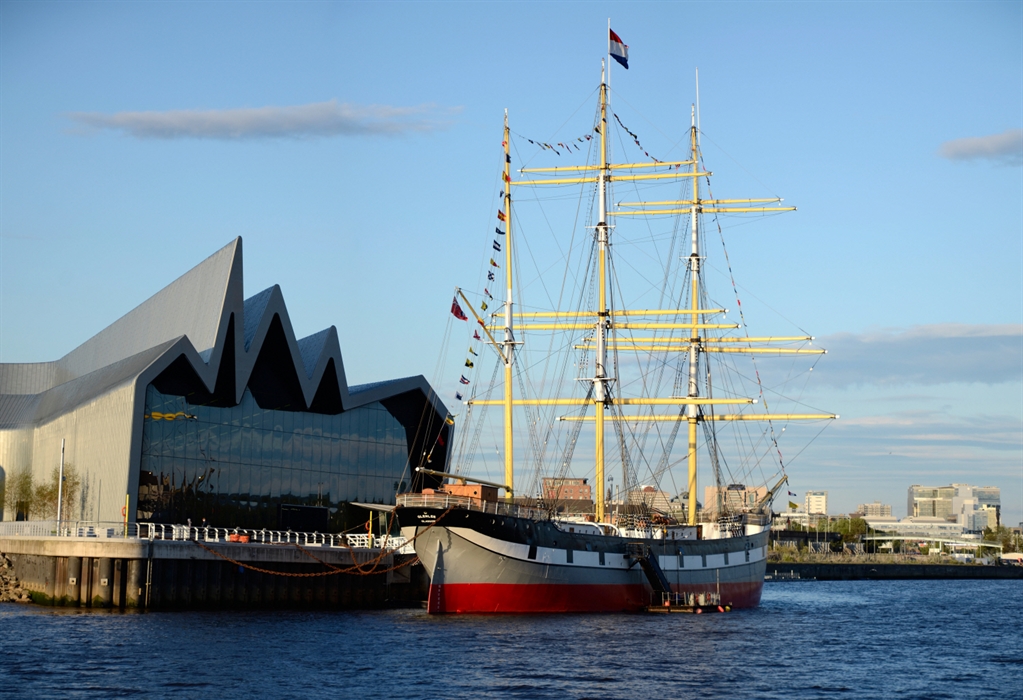
2. The Guangzhou Opera House, China
Located in Guangzhou, this iconic opera house opened in 2010. Its twin-shell structure features curved granite and glass, blending harmoniously with its riverside setting. Inside, the acoustics and advanced technology elevate its performance spaces, making it a landmark for contemporary arts and culture.
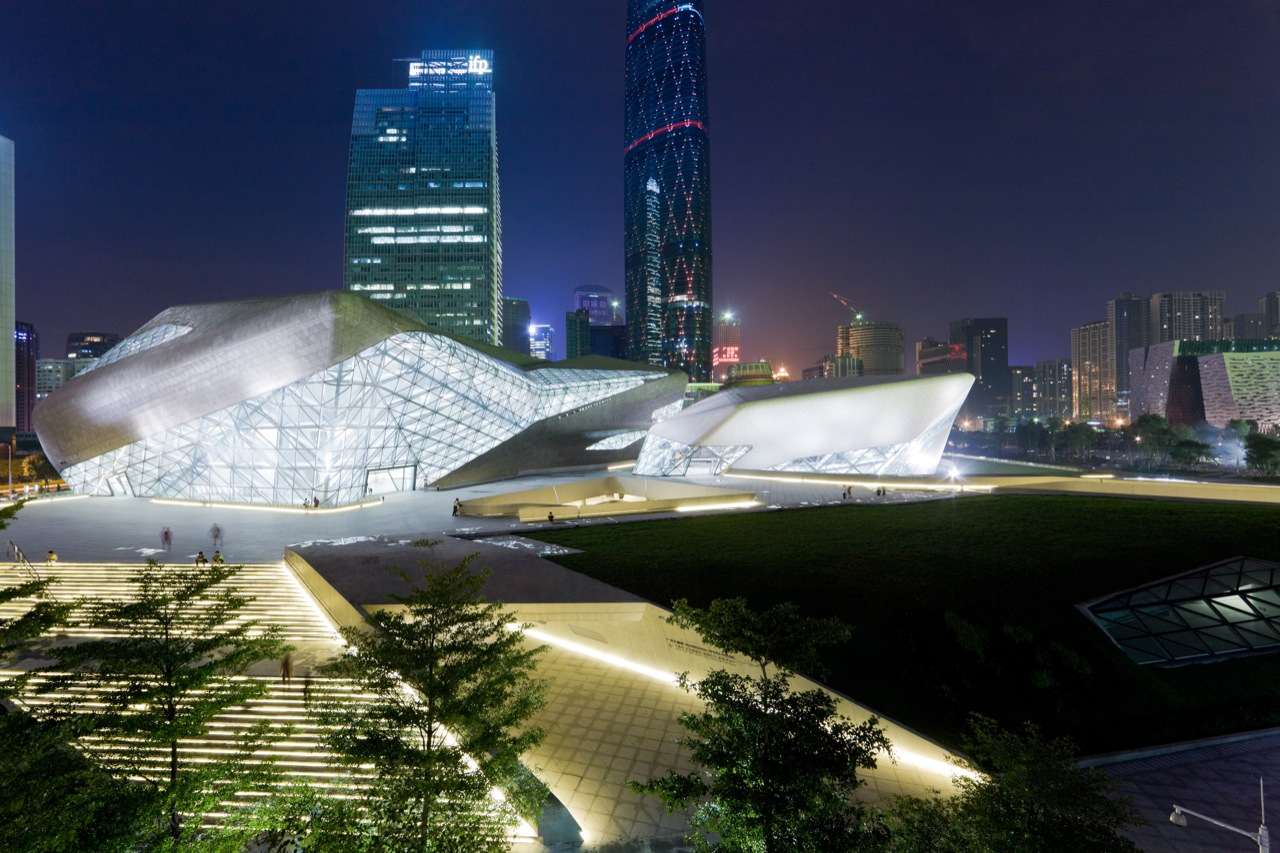
3. The MAXXI Museum, Rome
The MAXXI Museum, completed in 2010, is Italy’s National Museum of 21st Century Arts. Its intersecting linear forms and open interior encourage exploration, facilitating fluid movement between galleries. This innovative design creates a space that is as dynamic as the contemporary art it displays.
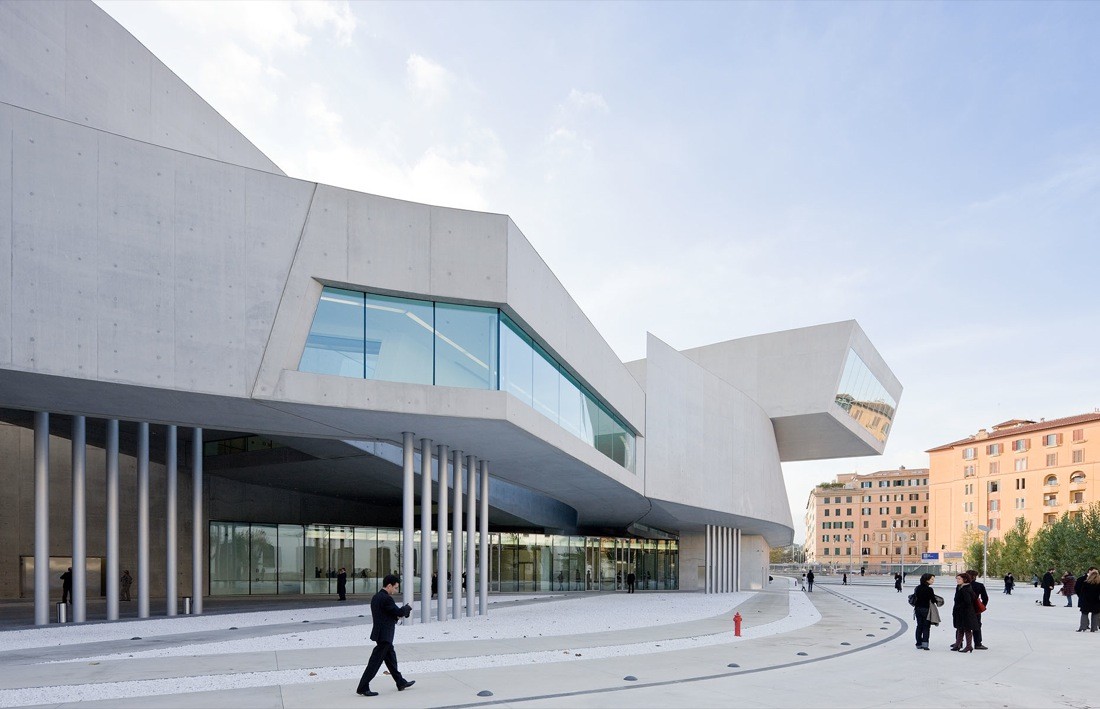
4. The Heydar Aliyev Center, Azerbaijan
Baku’s Heydar Aliyev Center, completed in 2012, symbolizes fluidity with its flowing, undulating exterior. The building integrates into the landscape seamlessly, utilizing reinforced concrete and glass. It serves as a cultural hub, housing exhibition halls, a museum, and a large auditorium.
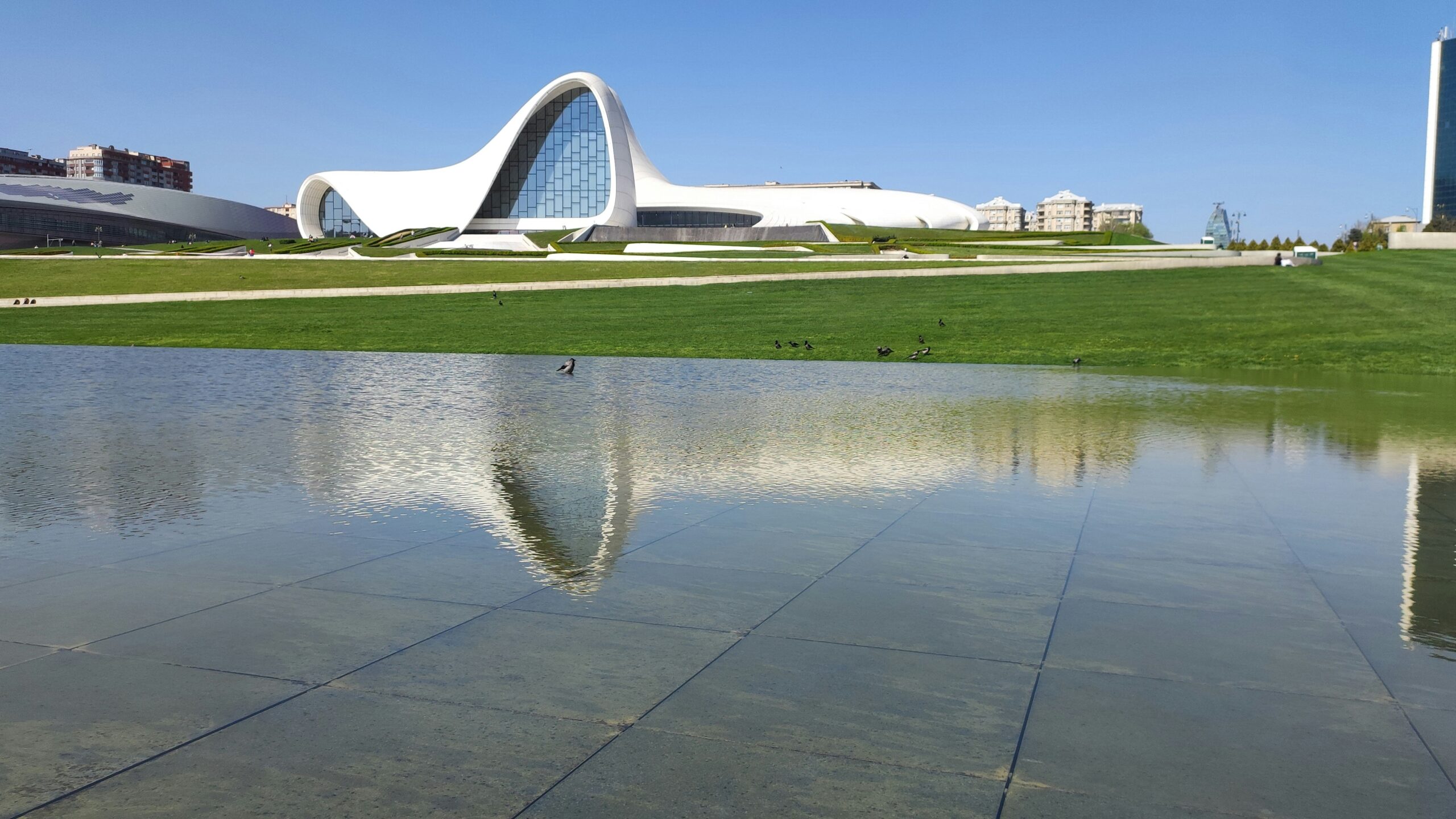
5. The Sheikh Zayed Bridge, Abu Dhabi
Opened in 2010, the Sheikh Zayed Bridge spans 842 meters, linking Abu Dhabi to the mainland. Its sinuous steel arches mimic sand dunes, blending modern engineering with cultural symbolism. The bridge’s architectural lighting transforms it into a glowing landmark at night.
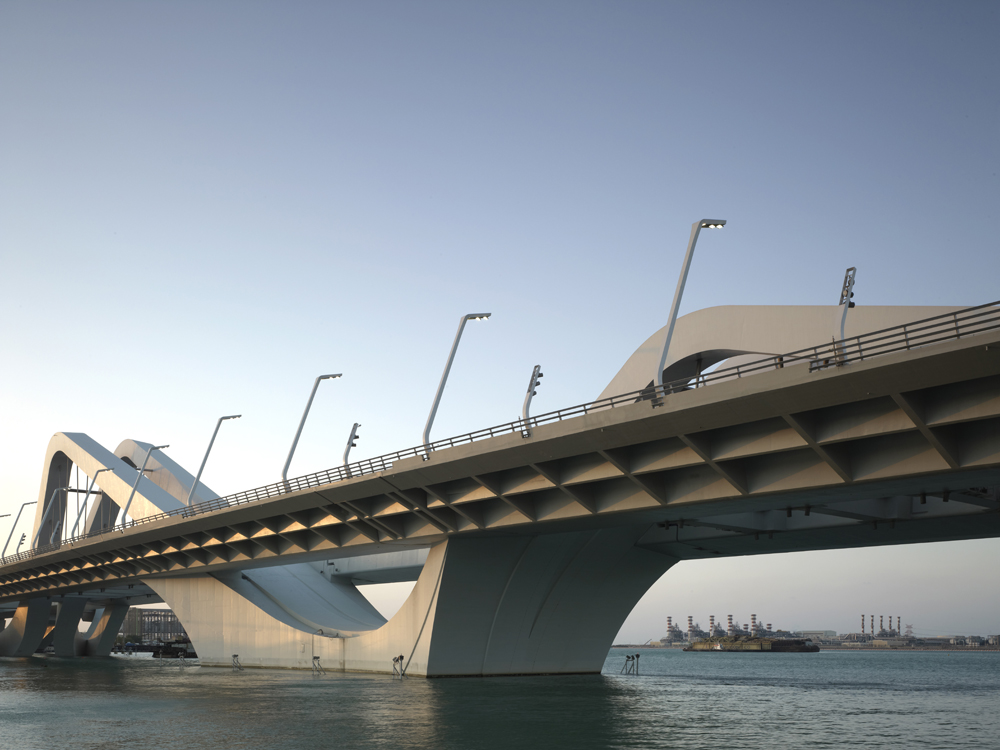
6. The London Aquatics Center, UK
Designed for the 2012 Olympics, the London Aquatics Center showcases Hadid’s mastery of curvilinear forms. Its wave-like roof spans 160 meters, supported by minimal columns. The center now serves as a public facility, blending functionality with innovative design.
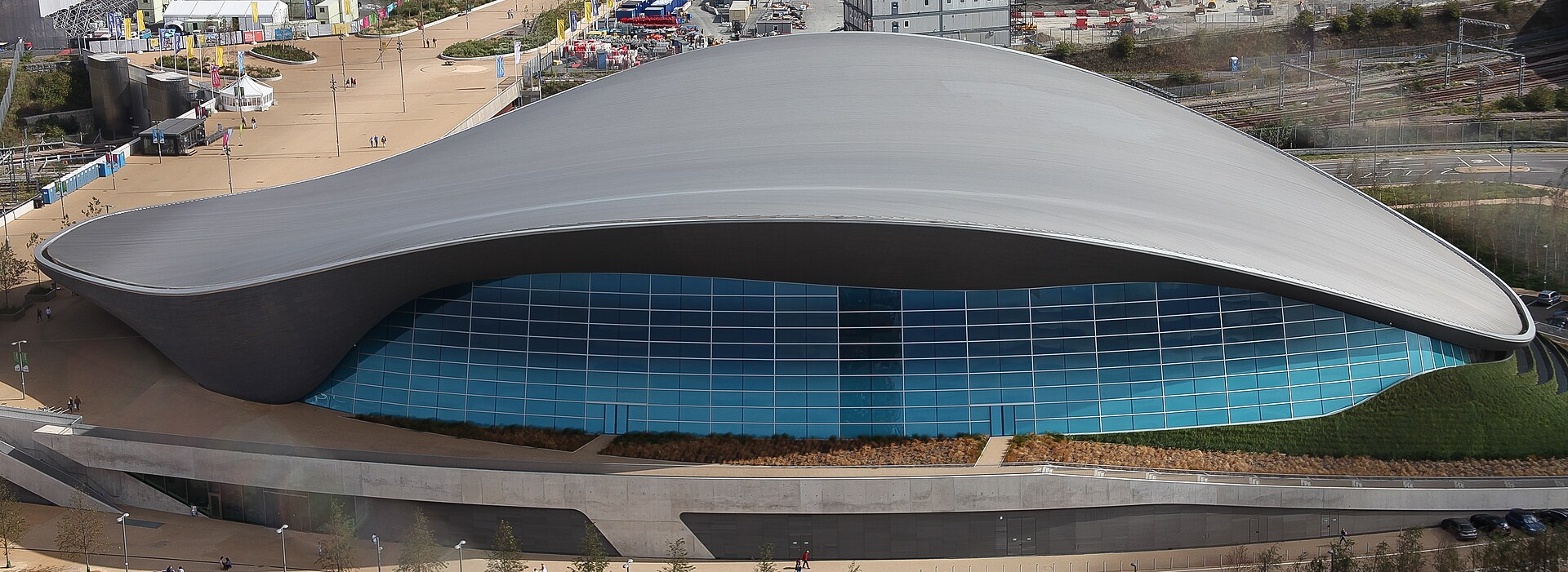
7. The Port House, Antwerp
Completed in 2016, the Port House combines a restored fire station with a futuristic glass extension. The crystalline structure, shaped like a ship’s bow, honors Antwerp’s maritime heritage. Its design optimizes natural light, reducing energy consumption and celebrating the city’s industrial history.
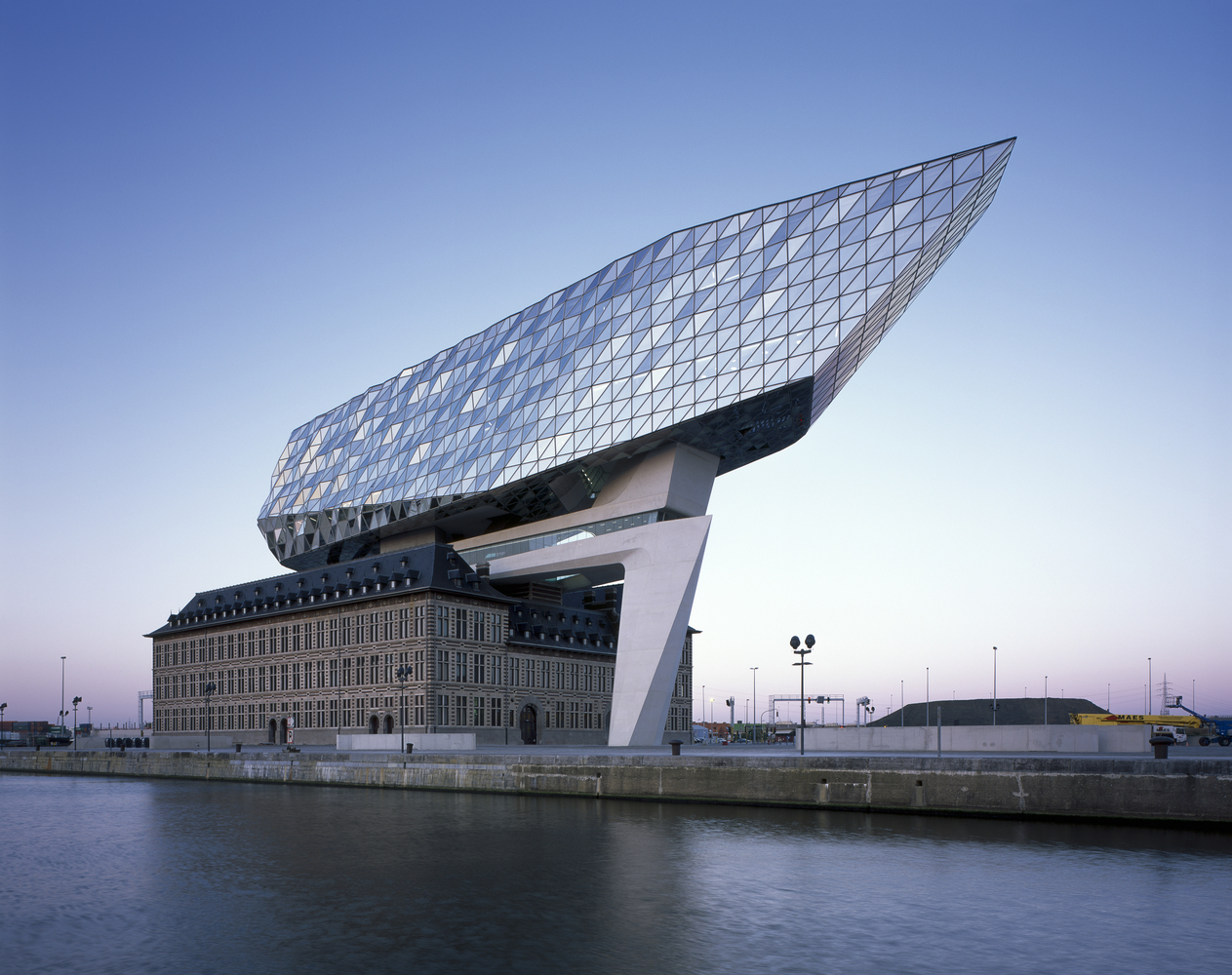
8. The Ordrupgaard Extension, Denmark
Hadid’s 2005 extension of the Ordrupgaard Museum features sharp, angular shapes that contrast with the original 20th-century building. The sleek, black concrete echoes the nearby forest, creating harmony between the architectural styles while expanding exhibition capacity.
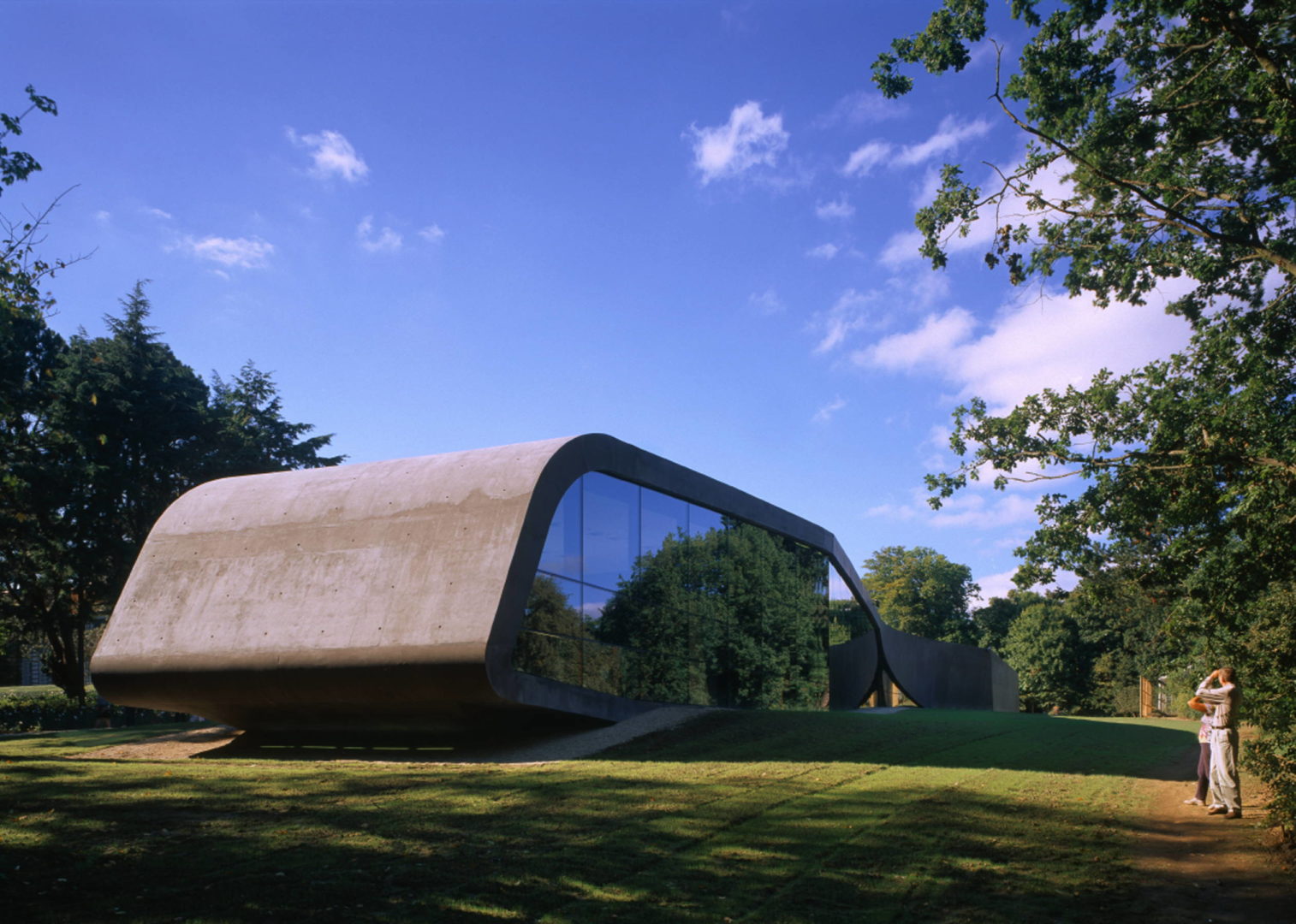
9. The Capital Hill Residence, Moscow
This 2011 private residence stands out with its futuristic and asymmetrical design. Located in a wooded area, its elevated spaces provide panoramic views, while its interconnected forms balance privacy with openness, delivering a one-of-a-kind living experience.
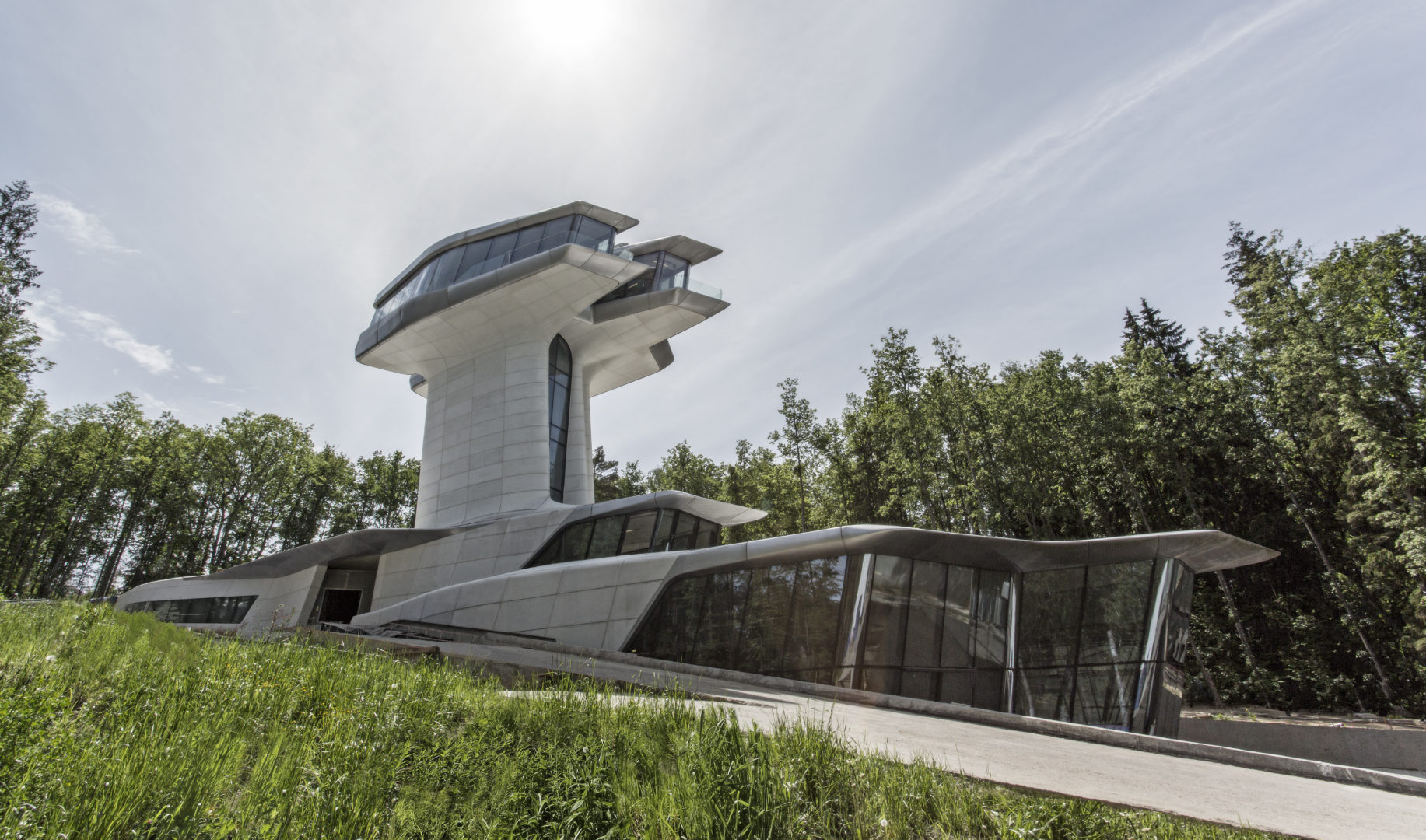
10. Al Janoub Stadium, Qatar
Designed for the 2022 FIFA World Cup, Al Janoub Stadium opened in 2019. Inspired by traditional dhow boats, its aerodynamic roof incorporates cooling technology suited for Qatar’s climate. The stadium exemplifies Hadid’s ability to blend cultural heritage with modern functionality.
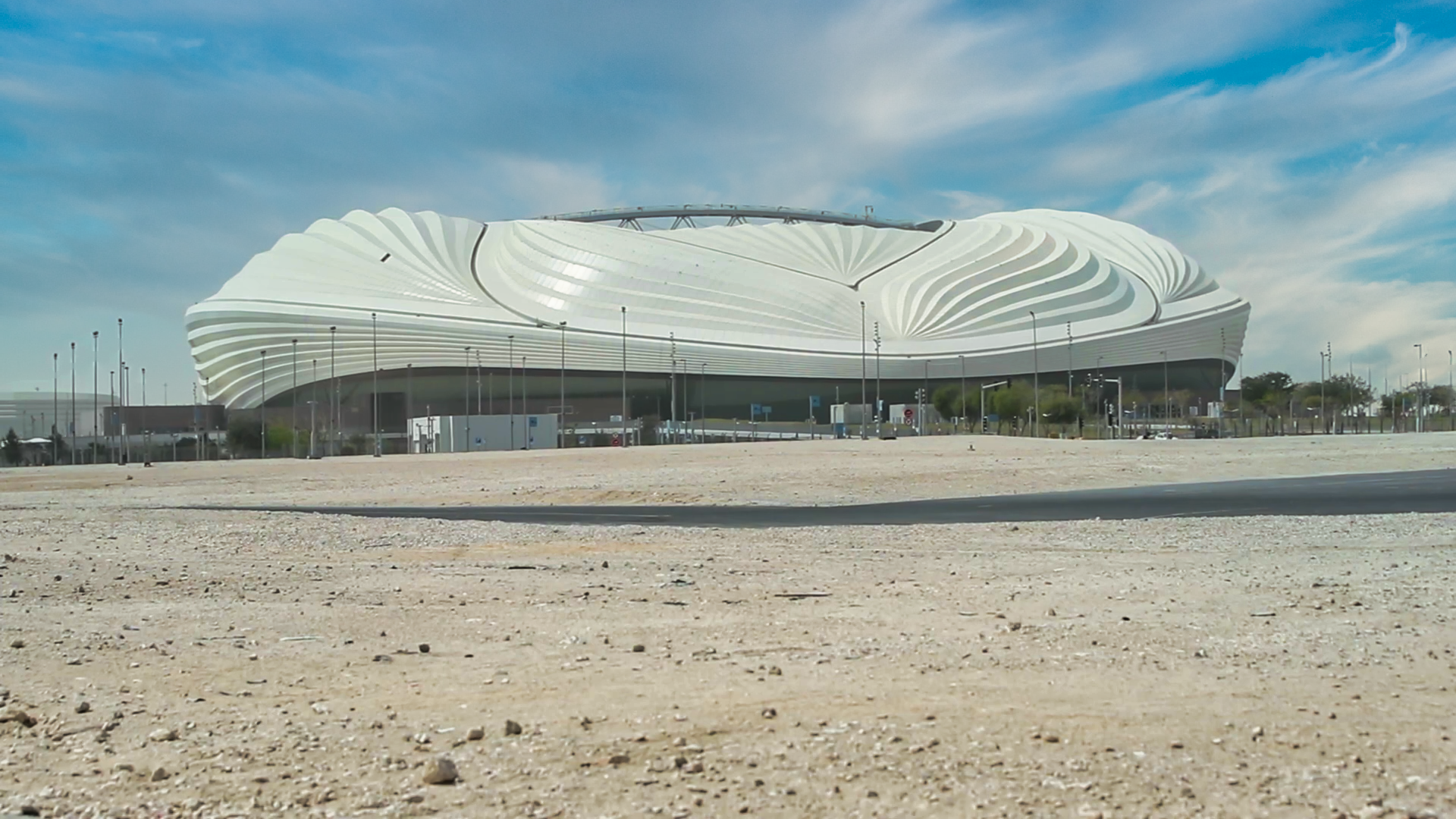
Impact Of These Works On Modern Architecture
Zaha Hadid’s projects have redefined architectural norms by introducing fluidity and breaking away from traditional designs. Her innovative use of curved forms and futuristic aesthetics has influenced contemporary architects to explore more experimental, non-linear approaches. Structures like the Heydar Aliyev Center and the Guangzhou Opera House demonstrate how dynamic designs can harmonize with natural surroundings while achieving functionality.
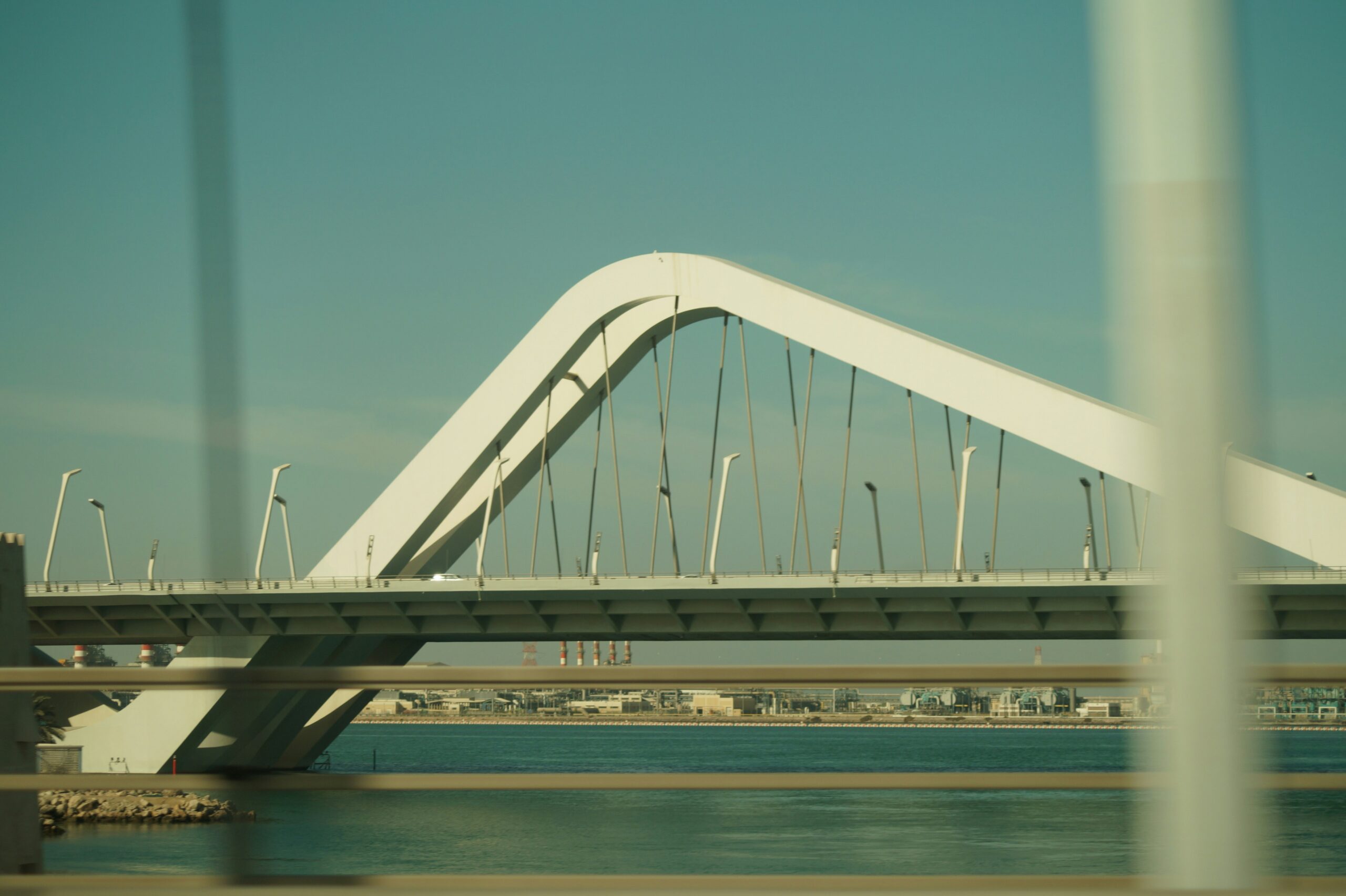
Her works have also advanced material innovation in architecture. By utilizing reinforced concrete, glass, and steel in unconventional ways, Hadid’s buildings exhibit both structural ingenuity and aesthetic refinement. This approach has set a precedent for combining advanced engineering with artistic ambition, which is now a benchmark in bold urban design.
Hadid’s integration of parametric design tools has reshaped architectural practice globally. By harnessing these digital methods, projects like the MAXXI Museum in Rome have pushed technical limits, enabling sustainability and efficiency within complex structures. These techniques encourage us and other architects to innovate while maintaining practical utility.
Additionally, Hadid’s influence extends to promoting architecture as an art form. Through projects such as the London Aquatics Center or the Al Janoub Stadium, she reinforces the idea that functionality and emotive design can coexist. Her designs have inspired a new era of architects to experiment with spatial narratives, creating iconic landmarks with cultural significance.
Her international portfolio has elevated global architecture by merging local contexts with progressive design language. From cultural spaces to civic infrastructures, her work serves as a standard of modern architecture’s potential to transform urban landscapes while challenging conventional boundaries.
Conclusion
Zaha Hadid’s architectural vision has forever changed the way we perceive and experience spaces. Her ability to merge art, engineering, and innovation has left an indelible mark on modern architecture, inspiring future generations to think beyond conventional boundaries.
Her works stand as timeless examples of creativity and boldness, blending functionality with artistic flair. As we continue to admire her groundbreaking designs, Hadid’s legacy reminds us of the transformative power of architecture in shaping our world.
- architecture by Zaha Hadid
- contemporary architectural works
- Famous Architects
- famous modern architects
- Futuristic Architecture
- iconic Zaha Hadid designs
- influential modern architecture
- landmark buildings by Zaha Hadid
- modern architectural masterpieces
- Modern Architecture
- notable works by Zaha Hadid
- renowned architects
- top architectural designs
- Zaha Hadid architecture
- Zaha Hadid buildings
- Zaha Hadid constructions
- Zaha Hadid contributions
- Zaha Hadid design style
- Zaha Hadid innovations
- Zaha Hadid's best projects
Submit your architectural projects
Follow these steps for submission your project. Submission FormLatest Posts
Modernism vs Postmodernism: How Order and Ornament Shape Architectural Meaning
Modernism and Postmodernism represent two fundamentally different ways of understanding architecture’s role...
Tips to Keep Your Belongings Safe from Heat, Cold, and Humidity
Table of Contents Show Pack everything appropriatelyWhat to do if you plan...
8 Smart Steps to Take Before Buying a Home for Sale
Table of Contents Show 1. Assess Financial Readiness2. Research Neighborhoods Thoroughly3. Be...
10 Healthy Habits for Surviving Long Studio Hours
Long studio hours are a reality in architecture and design, but without...





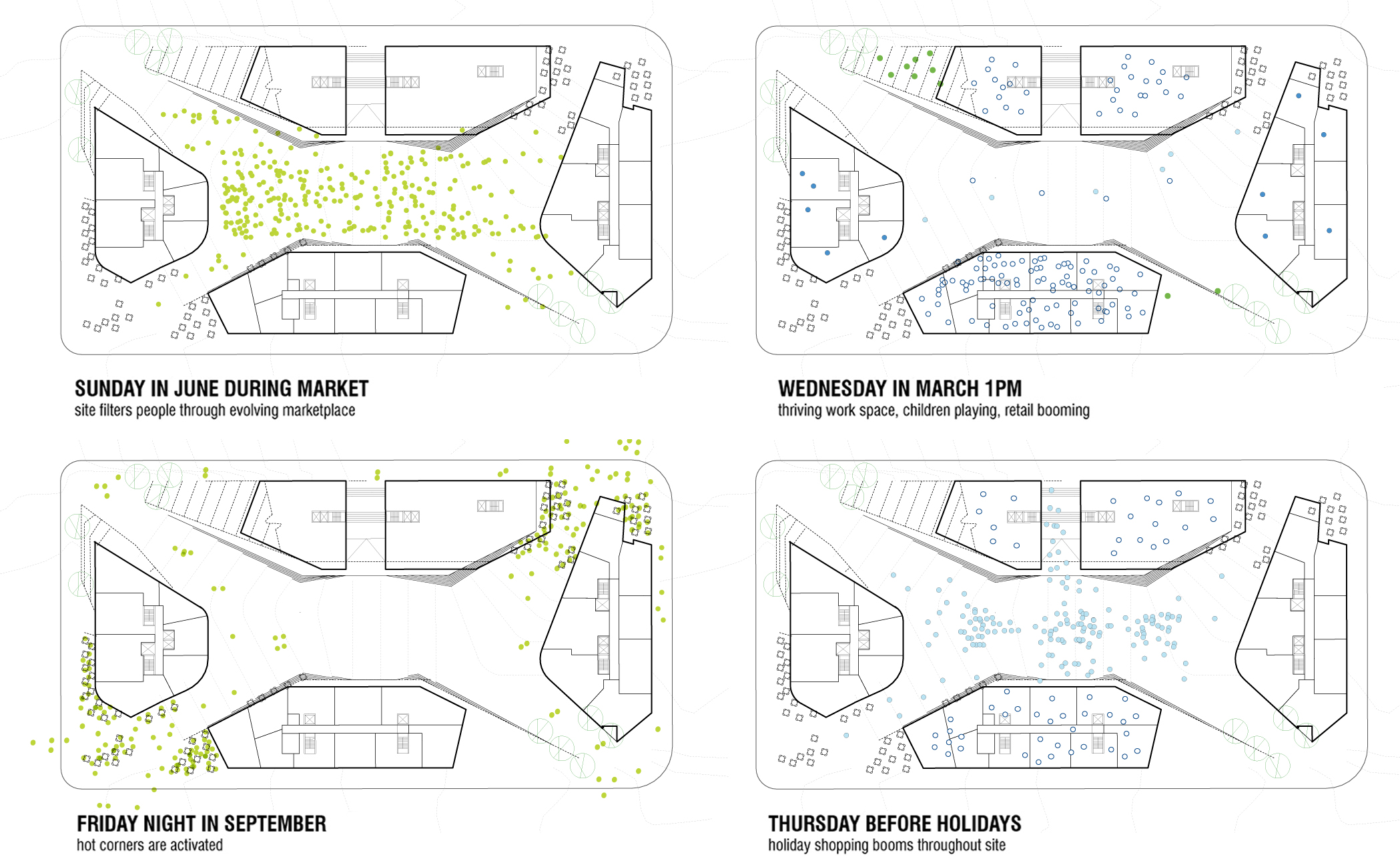






Leave a comment